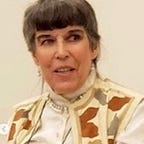Short-Term Memory Loss can Lead to Alzheimer’s? — and other questions
“Awareness is the key to living well.” Shirley Willett
On the phone with me in the 1980s, my brother, Donnie, would often say, “I don’t remember”, and his tone was fearful. In 2014, at 82, he died of Alzheimer’s. I wish I knew then, what I know now — to have helped him.
I am now 91, with short-term memory loss, and I have been fearing Alzheimer’s, like my brother, Donnie. However, I have been very good at becoming aware of my fears, and working on them. Knowing that I have this fear, I am now thinking more about my experiences, and repeating in my mind, if I want to remember them. And it works! I am beginning to remember what I want to remember, through repetition mentally.
Why do I write about these experiences to you?
Hopefully, my answers from developing Awareness, after identifying the problem, may help my readers. There are many writers on Medium.com that feel the same way. When we answer a problem for ourselves, we want to share, which helps others and ourselves.
In 1963, my mother died of a stroke, leading to a Cerebral hemorrhage. Because I followed my mother in many ways, I reflected on her life to understand why, and the primary cause was a very high cholesterol. As it turns out my brothers and I also had this problem — that is our genetics makes the higher cholesterol. Gradually I documented my cholesterol, and changed my diet, and went from 275 total to recently 144 total.
Mental Health Through Awareness of Emotions
I was mentally hospitalized three times in 1963, after my mother died, in 1975, after coming home from a retreat on Transcendental Meditation, and in 1978, after my father died. All 3 times I was considered Manic-Depressive, which I am. However, it took me into the 1980s, and studying Psychiatric systems,and my own emotions, that, for me, manic-depression is not an illness. I was hospitalized for not following appropriate behavior demanded by society at those times. I was not depressed. The in-appropriate behavior, I was told, was from hypersensitivity of strong emotional reactions to some events (manics).
In John E. Kelly’s Manic-Depression, Illness or Awakening, 1995, he says, “[It is] a psychological process, well documented by Carl Jung, which needs completion to ‘re-set’ the psyche. … The Mental Health system together with pharmaceutical companies have built a multibillion dollar empire by creating mental illnesses that do not exist”.
Emotions are increasingly gaining importance as Daniel Goleman says in Emotional Intelligence: Why it can matter more than IQ, 1995. He explains, “Emotions are impulses to act”. I go further and say E-motion is energy in motion in the inner reality. Goleman also states, “Self-Awareness is attention to one’s inner states”, with a brilliant description: “Emotionally self-aware is recognizing and naming own emotions; understanding the cause of feelings; and recognizing the difference between feelings and actions.”
After deeply studying emotions, as in my chart, “Color of Emotions”, I came to love myself and my behavior, and wrote an article: “Mental Illness is Social Illness”.
You can see I gave each of six emotions a color. When you become aware that you have an emotional feeling, then see that you can go from depression to joy in gradual steps of working on them.
Thank you for reading. Hopefully you learned something. Love to all.
